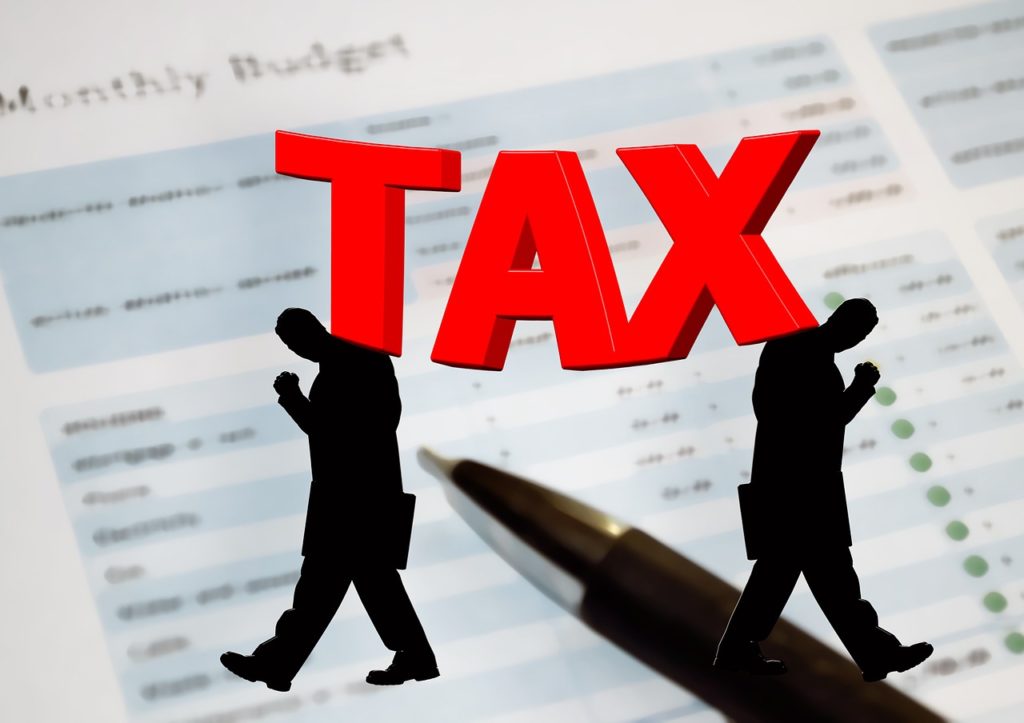Tax planning is very important! Do you know what percentage of your income gets paid to the government each year?
Most people do not know the answer to this question, this is especially true for people who are employees as tax gets automatically deducted from their salary each month and most employees receive their salary net of any tax expense paid directly to the tax authorities by their employer.
However, the reality is that for the majority of people tax is the biggest expense item each month and a significant amount of money can be saved with careful tax planning.
There are many legal ways to reduce your tax liability.
FILIP uses some simple legal ways to reduce the tax expense liability on earned income, investment income, savings income and capital gains.
1. Ways to reduce employment or self-employed income tax
– Contribute more into your pension fund.
In the UK in the tax year 2020/2021 you can contribute up to £40,000 tax-free each year. If you are a high earner and earning above £150,000 per year the amount of money you can contribute tax-free towards your pension gets reduced.
If you want to contribute more than £40,000 in a year you can also use any unused annual pension allowances from the previous 3 years. That means that if at some point you have an exceptionally good year and you have not contributed towards your pension fund in the previous 3 years you can contribute tax free in one year up to £160,000 into your pension fund.
– Identify expenses which are tax deductible.
This is mainly an advantage that self-employed persons can use as they can deduct business related expenses from their taxable income but some of these deductions can also be used by employees of a company.
Examples of such expenses are business travel, business trips, work uniform, professional bodies membership fees, work from home expenses, losses carried forward from previous years etc.
– Claim tax credits.
There are many tax credits and tax benefits, check the tax authority website to see if you are eligible for any of these tax credits or benefits.
We cover the main tax credits and benefits in more detail in another article specific to tax credits and benefits in the income category.
– If you are an employee, you can utilize employee tax benefits.
For example, you can claim tax free childcare. You can claim up to 25% of your childcare costs up to £500 every 3 months.
You can ask your Human Resources department or research the government websites for a list of the tax benefits you can use.
2. Ways to reduce shares investment income tax
– Materialize your investment income in the tax period in which you have less income.
If you have the option time carefully when you realize your investment income as realizing this income in tax periods with lower income will reduce your tax liability.
– Use your dividend allowance.
Each year, you can earn a certain amount of income from dividends before paying tax. In the UK for the tax year 2020/2021 this is £2,000 per year.
– Invest with an Enterprise Investment Scheme (EIS) or Venture Capital Trust (VCT).
You can claim 30% tax relief up to £1m of EIS and up to £200,000 of VCT investments. You can claim this tax relied against your total income in that tax year.
– Set up a trust for investment purposes in which investment income can be taxed at a lower rate.
We cover trusts in another article specific to trusts in the money management section.
3. Ways to reduce real estate investment income tax
– Use the Rent-a-room relief which allows you to up to £7,500 in rent each year from a lodger, tax-free.
This only applies if you rent out furnished accommodation in your own home and you also live in the property.
– If you rent out your flat you can claim tax relief by deducting from the real estate income any landlord’s expenses and replacement of domestic items.
Examples of expenses are letting-agency fees, ground rents and service charges, accountant’s fees and landlord insurance.
The types of items you can claim relief on include beds, carpets, crockery or cutlery, sofas, curtains, fridges and other white goods.
– If you have a buy-to-let mortgage you can claim tax relief which is a tax credit for 20% of the interest you pay on the mortgage.
– Set up a trust for real estate investment purposes in which real estate investment income can be taxed at a lower rate.
We cover trusts in another article specific to trusts in the money management section.
4. Ways to reduce capital gains (from investments in shares or real estate) tax
Capital gain is the difference between the sale and purchase price when you sell investment assets (real estate or shares) which have appreciated since you originally bought these assets.
– Use your capital gains allowance.
In 2021 capital gains of up to £12,300 are tax-free.
Married couples and civil partners who own assets jointly can claim a double allowance of £24,600.
If you don’t use the allowance within the tax year, it’s lost forever.
You can’t add your tax-free allowances together for different years.
– Reinvest some of the sales proceeds in order to reduce your capital gains tax liability.
– Consider selling any assets which will result to capital losses.
Capital losses can be offset against capital gains of the same type in the same tax year and can also be carried forward to future years.
When you start a business you may be able to offset a loss against income from other sources made in previous tax years.
– If you have a rental property in which you lived at some time in the past you can claim tax relief for some of the capital gains tax that arises when you sell the property.
In 2021 you get full relief for a) the years your lived in the home and b) the last 9 months you owned the home even if you were not living there at the time.
5. Ways to reduce tax on your savings
– Maximize your personal savings allowance.
In the tax year 2020-21, you can earn £1,000 of interest on savings tax-free if you’re a basic-rate taxpayer (total annual gross income up to £50,000).
If you’re a higher-rate taxpayer (total annual gross income between £50,000 and £150,000), your tax-free allowance is £500. You’ll only pay tax on savings income that exceeds this threshold.
– Invest in Individual Savings Accounts (ISAs).
There are different types of ISAs with the two main types being cash and stock and shares ISAs.
You will not pay any tax on the interest or capital gains made within an ISA. In the tax year 2020-21, you can deposit up to £20,000 into ISAs.
Junior ISAs are long-term, tax-free savings accounts for children. In the tax year 2020-21 tax year, you can deposit up to £9,000 into ISAs.
6. Ways to increase your charitable contributions
– Make a charitable donation.
If you are a UK taxpayer you can add for free 25% on top of any charitable donations you make.
– Set up a charitable trust.
Until the next article or video make informed financial decisions!
Disclaimer
Please note the above is not financial or tax advice. Not all of the above ways will work for everyone. Every person has their own particular circumstances, risk appetite, investment horizon, constraints, income sources and expenses. You should consult with your tax expert, financial adviser, accountant or lawyer before you use any of the above.


kinda appreciated what you published actually. it really is not that easy to find good text toactually read (you know READ and not simply browsing through it like a zombie before moving on), so cheers mate for really not wasting my time on the god forsaken internet.
thank you so much for you kind comment! Feel free to read more articles on personal finance on our website and also share on social media. We are working actively on building our website and we will be writing a few more articles in the next days.